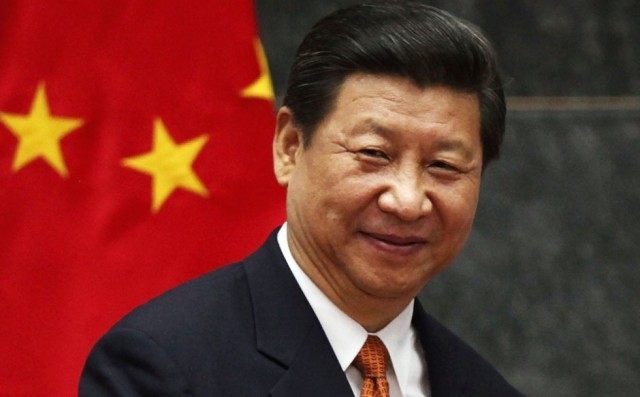Silicon Valley’s elites congregated this week to pay obeisance to a controversial world leader. No, not His Holiness: I’m talking about Chinese Premier Xi Jinping.
With the unanticipated gusto of a portly buffet patron when a new tray of crab’s legs is brought out, tech barons including Facebook founder Mark Zuckerberg, Amazon boss Jeff Bezos and Apple CEO Tim Cook, descended on Seattle yesterday to pay their respects to the leader of a country notorious for imprisoning dissidents and censoring the internet.
Joining them were Microsoft CEO Satya Nadella, Intel CEO Brian Krzanich, IBM CEO Ginni Rometty, former Cisco CEO John Chambers, the founder of Alibaba, the founder of LinkedIn and the co-founders of Yahoo! and Airbnb. Business Insider has the full list.
It might seem strange that the great and the good of Silicon Valley are kowtowing to a country almost as well known for its human rights abuses as for anything else. After all, doesn’t Microsoft have its own “Global Human Rights Statement”?
Intel is so obsessed with projecting an image of political righteousness that they’ve blown $300 million on pointless diversity schemes while cutting jobs elsewhere in the company. And I’m pretty sure I recall that Yahoo! has a “business and human rights” program too, dedicated to promoting “free speech and privacy.”
If American tech firms want to maintain their self-righteous, social justice-inspired self-images, surely they would be hanging out with the social justice Pope on the East Coast. Instead, they’re breaking bread with a leader whose policies violate every principle they claim to stand for. Why?
It’s also odd given that China is responsible for the most high-profile breaches of data security in recent U.S history. According to former NSA Director Mike McConnell, China has hacked “every major corporation” in the U.S. That would presumably include the corporations whose CEOs just posed for a photo op with the Chinese leader.
Meh, who knows. Maybe Zuckerberg fancies a peek at the Hillary email trove. The Chinese apparently have a far more comprehensive set of them than the State Department does.
As always, despite the best efforts of corporations to cloak themselves in “corporate social responsibility,” money still talks. The U.S. tech industry is is inextricably tied to China’s.
It is underpaid Chinese factory workers who assemble Foxconn’s chips for Intel and the components for Apple’s iPhones. Little wonder that when the Chinese economy started to wobble last month, so too did Silicon Valley’s – and Tim Cook leapt to reassure investors that Apple was insulated.
China isn’t just good for cheap labour, of course. Increasingly, tech firms want access to its market of 1.5 billion people. In many cases, it doesn’t matter if most of them are poor: even the poor can afford cell phones and social networks these days.
That’s why Google has snuck back to the Chinese market, promising to work within its restrictive laws, five years after the company grandly announced it was removing its search engine from that country, citing censorship concerns. Despite the Chinese stock market’s recent crash, tech companies still see it as too big to ignore.
For a country to reach its economic potential sustainably, consumers need the freedom to consume and the freedom to create. There also needs to be a reasonable expectation of political stability. China meets none of these criteria. Its people still live under severe censorship, and there is no telling what political turmoil might occur if the victims of China’s recent economic troubles start pointing the finger at their government.
If tech companies were smart – and true to their socially-conscious marketing spiel – they might have considered meeting the Pope instead. He might be a bit too left-leaning for my liking, but for all the snide liberal mockery of his recent visit, the closest Francis has got to torturing anyone is subjecting Catholics to his Castroesque speechifying.
Follow Milo Yiannopoulos (@Nero) on Twitter and Facebook. He’s a hoot! Android users can download Milo Alert! to be notified about new articles when they are published.

COMMENTS
Please let us know if you're having issues with commenting.